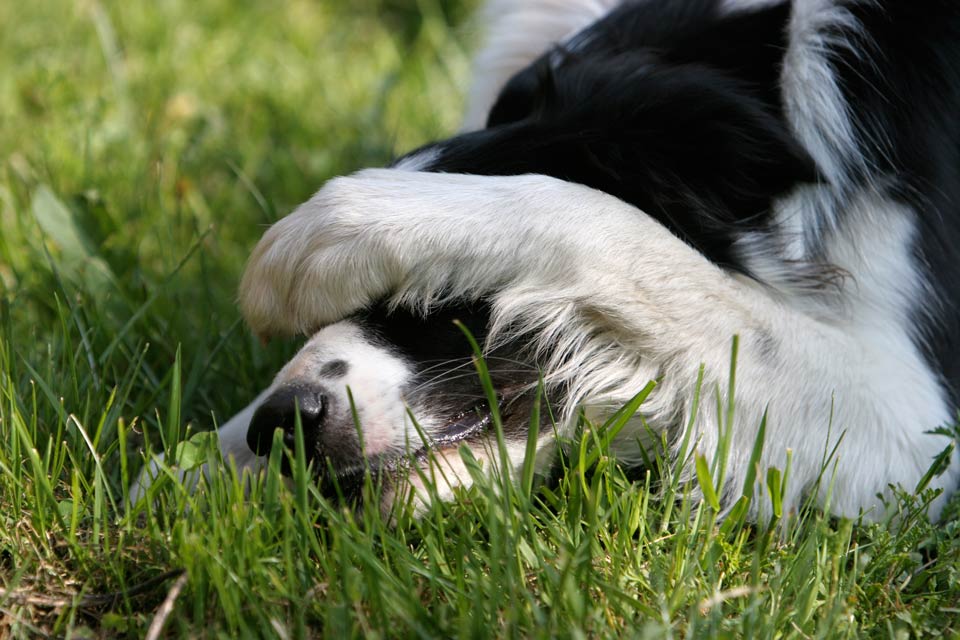Why Do Dogs Sometimes Look Guilty?

The Internet is filled with pictures of dogs looking and acting guilty, often sitting next to whatever they've done wrong that could have elicited that reaction.
But do dogs really feel guilt and act ashamed of their own volition?
Dogs Know How Humans Are Feeling
It's well-known and well-researched that dogs are good at interpreting humans' behavior and responding to it. When dogs encounter a person who is acting angry, they usually engage in behavior meant to appease the person and avoid being yelled at or possibly physically punished.
Some of the appeasement gestures dogs engage in look like guilt to humans. Dogs lower their eyes, duck their heads, lower their bodies or flip onto their backs, and even move their tail lower to the ground.
When people see the behavior that indicates appeasement in a dog, they often think the dog feels guilty.
However, new research is verifying what trainers and veterinarians have long said: dogs' "guilty" demeaner is a reaction to their owner's angry behavior, not a true expression of guilty feelings.
In one study, a treat was shown to a dog, but his owner told him not to eat it (AlexandraHorowitz, 2009). Then, the person left the room and the study director gave some of the dogs the treat but not others. Then, the owner was invited back into the room and told that their dog either had or hadn't eaten the treat they'd been directed to leave alone. The people were not necessarily given the correct information, so ultimately, they did not know whether their dog had disobeyed them.
When the owners returned to the room, researchers recorded the dogs and studied their behaviors. There was no difference in behavior between the dogs that had disobeyed their owner and those that haddn't.
When owners scolded their dogs for eating the treat (whether they had done so or not), the dogs showed behavior associated with appeasement (interpreted as guilt by people).
In another similar study, the researchers found that there wasn't any difference in how dogs greeted their owners, whether or not they had eaten food the owners had told them not to eat. Not only that, but the owners weren't able to tell if their dogs had disobeyed them just by the dogs' behavior.
So, Does My Dog Feel Guilty?
Researchers have determined that dogs don't feel guilt the way humans interpret it, but they do engage in appeasement behaviors when people around them are upset or angry. Guilt is a human emotion based on a lot of different things, including morality and ethics.
However, if a dog experiences a human's anger or upset connected with a specific situation a few times, he may learn to associate that situation with scolding or physical punishment and begin to show behavior meant to appease. That's why dogs will sometimes look guilty before the human even knows the dog has done something wrong.
Works Cited
- AlexandraHorowitz. (2009, July). Disambiguating the "guilty look": Salient prompts to a familiar dog behaviour. Retrieved from science daily.
You May Also Like These Articles:
How to Tell the Difference Between Playing and Fighting in Dogs
Dogs Are More Expressive When Humans Are Watching Them
Why Do Some Dogs Curl up in a Ball When They Go to Sleep?
What Causes Premature Graying in Dogs?
Disclaimer: This website is not intended to replace professional consultation, diagnosis, or treatment by a licensed veterinarian. If you require any veterinary related advice, contact your veterinarian promptly. Information at DogHealth.com is exclusively of a general reference nature. Do not disregard veterinary advice or delay treatment as a result of accessing information at this site. Just Answer is an external service not affiliated with DogHealth.com.


